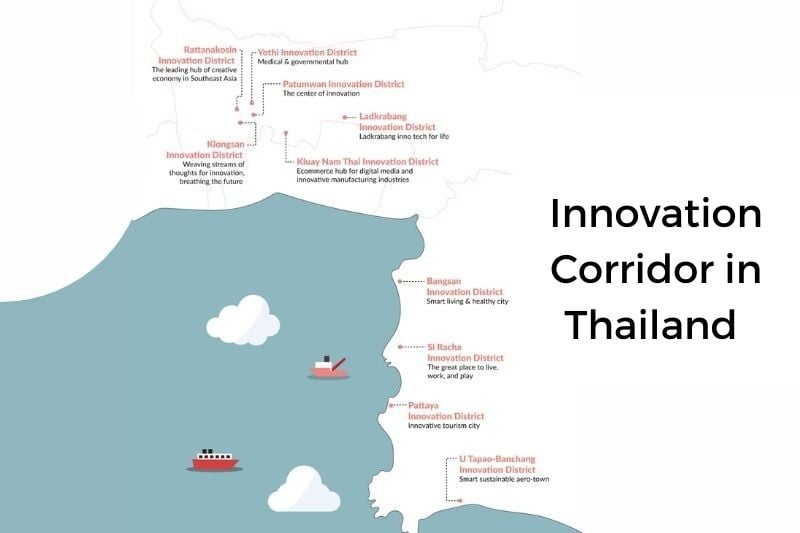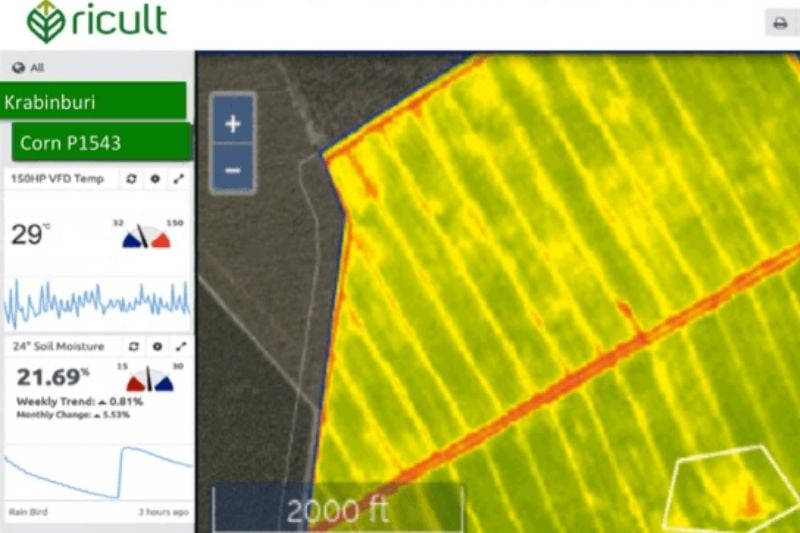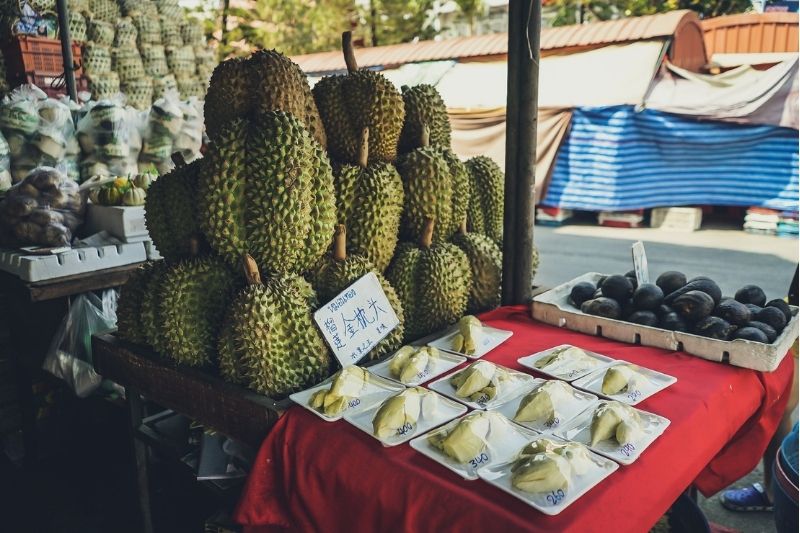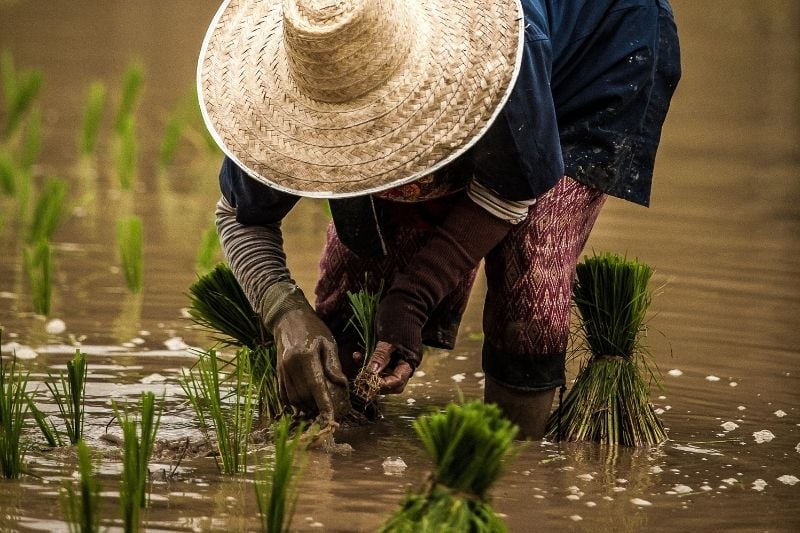Global food supplies are struggling due to dwindling resources, urbanisation, climate change, and water shortages. AgriTech is the sector solving this problem. To learn more about why APAC holds huge AgriTech investment opportunities, read our quick guide. Read on for an in-depth review of AgriTech in Thailand, and the country’s leading startups in agricultural technology.
Thailand is rapidly expanding its manufacturing, service, and retail sectors, but agriculture remains the backbone industry of the country. Thai agriculture is one of the top global exporters for rice, sugar, and rubber, employing a third of the country’s workforce, using 40% of Thailand’s land area, and contributing to 10% of its GDP. Rice-farming is deeply embedded into the country’s culture as well.
However, the farmers supporting these economic gains are not reaping the benefits. Farming households grapple with poverty, 40% earning an annual income below Thailand’s poverty line, 30% having debt levels above the average farming income. Besides poverty, Thai agriculture contends with the aging labour force, climate change, and overuse of chemicals (organic farming is almost non-existent in Thailand). The country is also in danger of being stuck in the middle-income trap: unable to compete purely on low prices against countries like Vietnam and India in the international market, while farmers’ education levels and technological research and development (R&D) are not as high as those in more advanced countries.

To free Thailand from this trap, the government has rolled out “Thailand 4.0,” a set of policies which aim to restructure the economy to become knowledge-based. One of the initiatives included in “Thailand 4.0” is the creation of “innovation districts” that link up to become an “innovation corridor” from Bangkok to the Eastern seaboard, and this will support the development of Thailand’s AgriTech. Given the importance of agriculture to the country’s economy, and related industries such as food processing, the BOI Thailand continues to offer incentives to invite investment, with the goal of expanding Thai food exports to markets such as ASEAN countries, China, US, India, UAE, Australia, and Russia.
Startups to Watch For
Ricult
Founded in 2016 by four MIT alumni, one of whom grew up in a family of farmers, Ricult uses deep tech, artificial intelligence, and machine learning to process satellite imagery data. It then informs farmers on when to irrigate and harvest their fields, providing soil analysis, pest and weather alerts, product price information and even a chat line with agriculture experts. It has expanded to FinTech and now offers farmers small loans and easy payment schedules tied in with their crop rotation. The company raised US$2 million in its August 2020 pre-Series A round and plans to expand to Laos, Vietnam, and Indonesia.

EDEN AgriTech
EDEN AgriTech has developed an innovative spray that coats fresh-cut fruit with a non-chemical, edible which extends their shelf life for up to 15 days. This solution helps Thai fruit farmers, as fresh-cut fruit sells for about 75 percent more. It also eliminates food waste caused by goods transport: according to the company’s founder, about 15 to 20 percent of fruits are discarded during transportation annually.

Algaeba
Founded in 2016, Algaeba aims to provide sustainable seafood through its innovative aquaculture technology. Their microalgae production and hatchery technology means they can precisely monitor and control every step of larval growth, enhancing survival rates by 40%, enabling clients to achieve higher productivity.
Evergrow
Founded in 2015, Evergrow develops farming technology that helps farmers improve their harvest yields. Their automation control system helps farmers monitor climate conditions and pesticides, enabling farmers to operate their farms with more efficiency.

Related Articles
Your Guide to AgriTech in Vietnam





